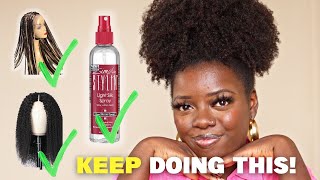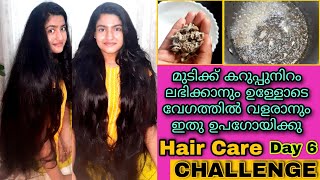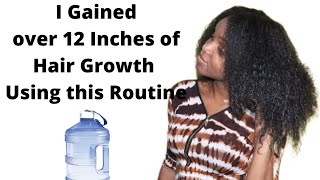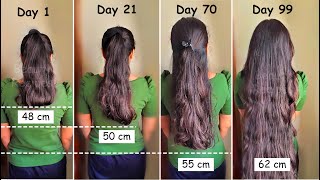Is Silicone Really Bad for Hair? FAQs Answered
Silicone can provide an array of short-term benefits for your hair, but you might wonder if silicone is bad for hair in the long run. Silicones are why that new shampoo gives you smooth locks, but they also play a role in your strands becoming greasy a couple of weeks later.
This article gives you a full rundown of silicone’s good and bad aspects, how silicone buildup develops, how to remove it, and a few healthy alternatives for healthy hair.
What is Silicone and Why is it Used in Shampoo?
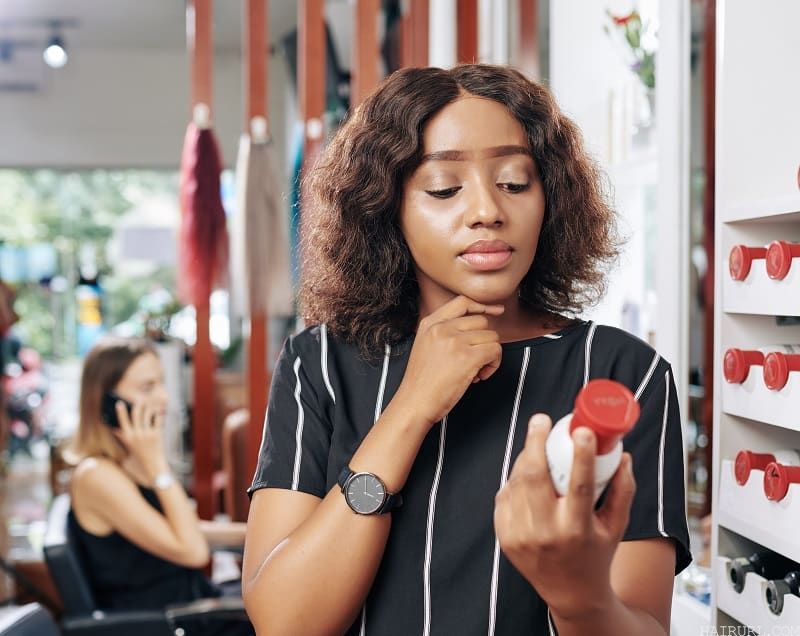
Silicone is a manufactured substance with various uses in cosmetic and household products. It is popular in hair care because it provides a coating for the hair shaft, which reduces frizziness, seals moisture, and gives the hair a silky, soft feel. Silicone is an effective solution for people who do not deal well with humidity.
What Makes Silicone Bad for Hair?
There are many positive benefits of the ingredient, but why is silicone bad for hair? Silicone does an excellent job of keeping hair hydrated from the inside, but this protection can inhibit nourishing ingredients from penetrating through the layer and into the hair follicle.
As silicone builds up on your hair, it will result in a dull appearance and dry feel. Your hair may become weaker and prone to breakage because of excess silicone.
What Are the Good and Bad Silicones to Look Out For?

Although silicones can be harmful to your hair in the long term, not all of them pose a threat. The water-soluble silicones are the right ingredients to go after. Good silicones do not cause buildup because they go through a boiling process, which reduces them down to a breathable temperature. Breathable silicones will provide effective conditioning and a nice shine for your hair strands.
A list of useful silicones to watch for include:
- Stearoxy Dimethicone
- Behenoxy Dimethicone
- Dimethicone Copolyol
When it comes to “bad” silicones, it would be best for you to avoid non-water-soluble ingredients. These bad silicones will coat your hair and make your roots feel greasy, regardless of how much you rinse.
Examples of harmful silicones include:
- Cetearyl Methicone
- Cetyl Dimethicone
- Dimethiconol
- Stearyl Dimethicone
- Amodimethicone
- Cyclomethicone
- Cyclopentasiloxane
How to Remove Silicones From Hair
So, what is the best way to remove silicones from your hair without causing any damage? It would be most useful to regularly wash your hair with a shampoo that contains ingredients like ammonium Laureth sulfate, Cocamidopropyl betaine, or sodium Laureth sulfate. These components help address any current silicone buildup and prevent the chances of it happening in the future.
Watch the following video tutorial to learn how to remove silicones from hair.
What Are Some Healthy Alternatives You Can Use Besides Silicone?
Yes, it is possible to achieve a silicone-free hair regimen but not lose frizz control or hydration. Healthy alternatives to silicone include any products that have conditioning properties. Many hair care products label themselves as ‘silicone-free’, which means they do not contain the bad ones.
So, how can you ensure your conditioner or shampoo is silicone-free? Look at the ingredients for plant-based oils and various natural ingredients, which provide a different way to give your hair a shiny look and nourish the locks. Effective plant-based oils like aloe vera, shea butter, and jojoba oil will do the trick.
FAQs on Silicone and Hair
Investing in products for your hair is a big decision. You are not alone in your curiosity, so check out some of the most frequently asked questions below.
Do Silicones Dry Out Hair and Cause Damage?
Although silicone provides hydration benefits at first, the buildup can dry out your hair and cause damage. The silicone protective layer promotes internal hydration, but it discourages other nutrients and ingredients from entering. The resulting dryness will make your hair become weak and expose it to breakage.
Is Silicone Bad for Curly Hair?
Not-water soluble silicones can cause adverse effects for curly hair. They are more likely to seal in hydration from the inside and prevent other nourishment from entering, which will cause your curls to weigh down. Curly hair will also lose its definition for straightening out curls for types 2 and 3.
What are the Signs of Silicone Buildup on Hair?
When you initially use silicones for your hair, you will notice benefits from shiny appearance and detangling ease. But as time goes and silicones build-up, your hair will become tough to manage, and it will be tougher to form your curls into ringlets. Your hair will also start to look dull and feel much drier to the touch.
What is Dimethicone?
Dimethicone is a silicone polymer in beauty products, which delivers a smooth, slippery feel to the formula. For skin, it is used for smoothing out wrinkles and fine lines. When it applies to hair, it coats your hair shaft and gives it a shiny appearance. But over time, it will build up and prevent water from entering your hair cuticle, leaving your hair and weak.
Final Wrap Up
The long-term health of your hair is essential, so we caution you on investing in shampoos that use silicones. They might provide short-term benefits in smooth hair, but the buildup over time can cause dryness, greasiness, and weaker locks. There are various strategies to remove buildup and purchase healthy alternatives, so you can strengthen your hair for years to come.

